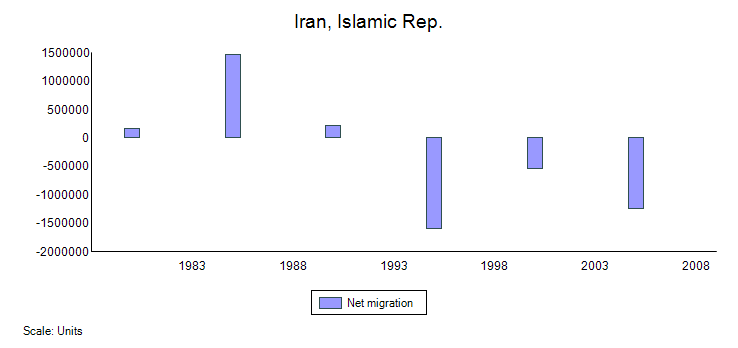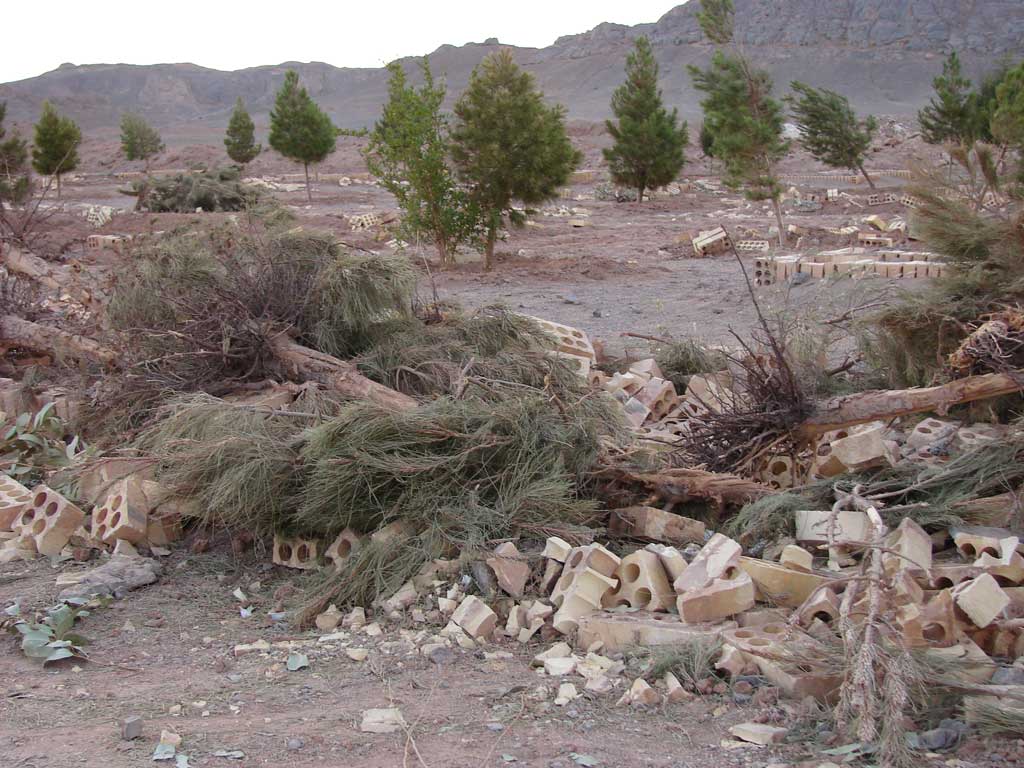|
Fasad
''Fasād'' ( ar, فساد ) is an Arabic word meaning rottenness, corruption, or depravity. In an Islamic context it can refer to ''spreading corruption on Earth'' or ''spreading mischief in a Muslim land'', moral corruption against God, or disturbance of the public peace. The spread of ''fasad'' is a major theme in the Quran, and the notion is often contrasted with ''islah'' (setting things aright). Classical Quranic commentators commonly interpreted "corruption in the land" as open disobedience against God or its result. In certain contexts, classical jurists took it to refer to the legal category of Hirabah, comprising armed assault, rape and murder. Some contemporary Muslims view destruction of the natural environment to be among the central meanings of verses referring to ''fasad''. In recent decades, the term has been used in the legal codes of the Islamic Republics of Pakistan and Iran. In Iran, laws referencing it have been used to prosecute or threaten political oppo ... [...More Info...] [...Related Items...] OR: [Wikipedia] [Google] [Baidu] |
Hirabah
In Islamic law, ''hirabah'' is a legal category that comprises highway robbery (traditionally understood as aggravated robbery or grand larceny, unlike theft, which has a different punishment), rape, and terrorism. Ḥirābah ( ar, حرابة) is an Arabic word for 'piracy', or 'unlawful warfare'. It comes from the triliteral root ''ḥrb'', which means “to become angry and enraged”. The noun ''ḥarb'' (, pl. ''ḥurūb'' ) means 'war' or 'wars'.Crane, Robert D., �Hirabah versus Jihad��, ''IFRI.org'' (Islamic Research Foundation International, Inc., 2006) '' Moharebeh'' (also spelled ''muharebeh'') is a Persian term that is treated as interchangeable with ''ḥirabah'' in Arabic lexicons. The related term ''muḥārib'' () (perpetrator of ''muḥāribah'') has been translated by English language Iranian media as "enemy of God". In English-language media sources Moḥarebeh in Iran has been translated variously as "waging war against God," "war against God and the state," [...More Info...] [...Related Items...] OR: [Wikipedia] [Google] [Baidu] |
Mofsed-e-filarz
Mofsed-e-filarz ( fa, مفسد فی الارض, also Mofsed fel-Arz, Afsad-i fil Arz, or fasad-fel-arz, ar, المفسد في الأرض Al-Mufsid fi al-Arḍ, also fasad fi 'l-ard lit. ''Corrupt on Earth'') is the title of capital crimes (or the person guilty of them) in Iran, that has been translated in English language sources variously as "spreading corruption on Earth", "spreading corruption that threatens social and political well-being", "corrupt of the earth; one who is charged with spreading corruption", "gross offenders of the moral order",Language and culture in Persian Paul Sprauchman, and "enemies of God on Earth". Quran, Shariah In classical |
Divisions Of The World In Islam
In classical Islamic law, the major divisions are ''dar al-Islam'' (lit. territory of Islam/voluntary submission to God), denoting regions where Islamic law prevails, ''dar al-sulh'' (lit. territory of treaty) denoting non-Islamic lands which have concluded an armistice with a Muslim government, and ''dar al-harb'' (lit. territory of war), denoting adjoining non-Islamic lands whose rulers are called upon to accept Islam."Dar al-Harb" ''The Oxford Dictionary of Islam'' The Arabic singular form ''dar'' (), translated literally, may mean "house", "abode", "structure", "place", "land", or "country". In it often refers to a part of the world. The notions of "houses" or "divisions" of the world in [...More Info...] [...Related Items...] OR: [Wikipedia] [Google] [Baidu] |
History Of The Islamic Republic Of Iran
One of the most dramatic changes in government in Iran's history was seen with the 1979 Iranian Revolution where Shah Mohammad Reza Pahlavi was overthrown and replaced by Ayatollah Ruhollah Khomeini. The authoritarian monarchy was replaced by a long-lasting Shiite Islamic totalitarian Islamic republic based on the principle of rule by Islamic jurists, (or "''Velayat-e faqih''"), where Shiite jurists serve as head of state and in many powerful governmental roles. A pro- Western, pro- American foreign policy was exchanged for one of " neither east nor west", said to rest on the three "pillars" of mandatory veil ('' hijab'') for women, and opposition to the United States and Israel. A rapidly modernizing capitalist economy was replaced by a populist and Islamic economy and culture. The leader of the revolution and founder of the Islamic Republic, Ayatollah Ruhollah Khomeini, was the Supreme Leader of Iran until his death in 1989. He was followed by Ali Khamenei. General tre ... [...More Info...] [...Related Items...] OR: [Wikipedia] [Google] [Baidu] |
Arabic Words And Phrases In Sharia
Arabic (, ' ; , ' or ) is a Semitic language spoken primarily across the Arab world.Semitic languages: an international handbook / edited by Stefan Weninger; in collaboration with Geoffrey Khan, Michael P. Streck, Janet C. E.Watson; Walter de Gruyter GmbH & Co. KG, Berlin/Boston, 2011. Having emerged in the 1st century, it is named after the Arab people; the term "Arab" was initially used to describe those living in the Arabian Peninsula, as perceived by geographers from ancient Greece. Since the 7th century, Arabic has been characterized by diglossia, with an opposition between a standard prestige language—i.e., Literary Arabic: Modern Standard Arabic (MSA) or Classical Arabic—and diverse vernacular varieties, which serve as mother tongues. Colloquial dialects vary significantly from MSA, impeding mutual intelligibility. MSA is only acquired through formal education and is not spoken natively. It is the language of literature, official documents, and formal written ... [...More Info...] [...Related Items...] OR: [Wikipedia] [Google] [Baidu] |
Corruption
Corruption is a form of dishonesty or a criminal offense which is undertaken by a person or an organization which is entrusted in a position of authority, in order to acquire illicit benefits or abuse power for one's personal gain. Corruption may involve many activities which include bribery, influence peddling and the embezzlement and it may also involve practices which are legal in many countries. Political corruption occurs when an office-holder or other governmental employee acts with an official capacity for personal gain. Corruption is most common in kleptocracies, oligarchies, narco-states, and mafia states. Corruption and crime are endemic sociological occurrences which appear with regular frequency in virtually all countries on a global scale in varying degrees and proportions. Each individual nation allocates domestic resources for the control and regulation of corruption and the deterrence of crime. Strategies which are undertaken in order to counter corruption are of ... [...More Info...] [...Related Items...] OR: [Wikipedia] [Google] [Baidu] |
Apostasy In Islam
Apostasy in Islam ( ar, ردة, or , ) is commonly defined as the abandonment of Islam by a Muslim, in thought, word, or through deed. An apostate from Islam is referred to by using the Arabic and Islamic term ''murtād'' (). It includes not only explicit renunciations of the Islamic faith by converting to another religion or abandoning religion altogether, but also blasphemy or heresy, through any action or utterance which implies unbelief, including those who deny a "fundamental tenet or creed" of Islam. While classical Islamic jurisprudence calls for the death penalty of those who refuse to repent of apostasy from Islam, the definition of this act and whether and how it should be punished, are disputed among Islamic scholars and strongly opposed by Muslim and Non-Muslim supporters of the universal human right to freedom of faith. As of 2021, there were ten Muslim-majority countries where apostasy from Islam was punishable by death, and another thirteen where the ... [...More Info...] [...Related Items...] OR: [Wikipedia] [Google] [Baidu] |
Mir-Hossein Mousavi
Mir-Hossein Mousavi Khameneh ( fa, میرحسین موسوی خامنه, Mīr-Hoseyn Mūsavī Khāmené, ; born 2 March 1942) is an Iranian reformist politician, artist and architect who served as the forty-ninth and last Prime Minister of Iran from 1981 to 1989. He was a reformist candidate for the 2009 presidential election and eventually the leader of the opposition in the post-election unrest. Mousavi served as the president of the Iranian Academy of Arts until 2009, when Conservative authorities removed him. In the early years of the revolution, Mousavi was the editor-in-chief of '' Jomhouri-e Eslami'', the official newspaper of the Islamic Republican Party, before being elevated to Minister of Foreign Affairs and eventually the post of Prime Minister. He was the last Prime Minister in Iran prior to the 1989 constitutional changes which removed the post of the prime minister; he then went into semi-retirement for the next 20 years. He remains a member of the Expediency ... [...More Info...] [...Related Items...] OR: [Wikipedia] [Google] [Baidu] |
Mehdi Karroubi
Mehdi Karroubi ( fa, مهدی کروبی, Mehdi Karrubi, born 26 September 1937) is an Iranian Shia cleric and reformist politician leading the National Trust Party. Following 2009–2010 Iranian election protests, Karroubi was put under house arrest in February 2011 – reportedly ordered by the Supreme Leader of Iran – without officially being charged, although he is accused of being a "seditionist" and "traitor". As of 2021, he is still confined to his house. He was the speaker of the parliament from 1989 to 1992 and 2000 to 2004, and a presidential candidate in the 2005 and 2009 presidential elections. He has been described as a "moderate" with a "mostly rural" base of support. Karroubi considers himself a pragmatic reformist and now is one of the leaders of the Iranian Green Movement. He is a founding member and former secretary-general of the Association of Combatant Clerics party. Karroubi is a critic of the Guardian Council and Iran's Judicial System. By appointment ... [...More Info...] [...Related Items...] OR: [Wikipedia] [Google] [Baidu] |
Persecution Of Baháʼís
Persecution of Baháʼís occurs in various countries, especially in Iran, where the Baháʼí Faith originated and where one of the largest Baháʼí populations in the world is located. The origins of the persecution stem from a variety of Baháʼí teachings which are inconsistent with traditional Islamic beliefs, including the finality of Muhammad's prophethood, and the placement of Baháʼís outside the Islamic religion.Mottahedeh, Roy, ''The Mantle of the Prophet : Religion and Politics in Iran'', One World, Oxford, 1985, 2000, p.238 Thus, Baháʼís are seen as apostates from Islam. Baháʼí spokespeople, as well as the United Nations, Amnesty International, the European Union, the United States, and peer-reviewed academic literature have stated that the members of the Baháʼí community in Iran have been subjected to unwarranted arrests, false imprisonment, beatings, torture, unjustified executions, confiscation and destruction of property owned by Baháʼí individ ... [...More Info...] [...Related Items...] OR: [Wikipedia] [Google] [Baidu] |
Baháʼí Faith
The Baháʼí Faith is a religion founded in the 19th century that teaches the essential worth of all religions and the unity of all people. Established by Baháʼu'lláh in the 19th century, it initially developed in Iran and parts of the Middle East, where it has faced ongoing persecution since its inception. The religion is estimated to have 5–8 million adherents, known as Baháʼís, spread throughout most of the world's countries and territories. The Baháʼí Faith has three central figures: the Báb (1819–1850), considered a herald who taught his followers that God would soon send a prophet similar to Jesus or Muhammad; the Báb was executed by Iranian authorities in 1850; Baháʼu'lláh (1817–1892), who claimed to be that prophet in 1863 and faced exile and imprisonment for most of his life; and his son, ʻAbdu'l-Bahá (1844–1921), who was released from confinement in 1908 and made teaching trips to Europe and the United States. After ʻAbdu'l-Bahá's de ... [...More Info...] [...Related Items...] OR: [Wikipedia] [Google] [Baidu] |





